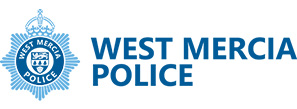|
||||
|
||||
|
|
||||
|
FRAUD RECOVERY SCAMS Whilst the latest Office for National Statistics (ONS) report for England and Wales for year end 2023, reports a slight reduction in reported fraud offences, there has been a rise of 31% in Fraud Recovery Scams, which target people who have been victims of scams already. Fraud Recovery scams are another form of Advance Fee Fraud as the scammer will ask for an advance fee, and very often follow-on fees, for expenses incurred. So, anyone who has been a recent victim of fraud in the past may be contacted again by the fraudster, who has retained your contact details. Recent victims of bank transfer and investments scams are very often common targets. This time the fraudster may pose as a Government agency, Police, lawyer or a Fraud Recovery company. So, if you have been a victim of fraud, be very aware of these fraudsters trying to contact you with promises that they can get your money back. They may approach you when you are still at your most vulnerable.
How do you spot the signs? If you have been contacted by someone who already knows about the monies you have lost and demands an upfront fee, and /or asks for your bank details, be very aware. Always challenge any contacts from unknown agencies whether it be emails, letters or phone calls. Always check the email address, as genuine agencies do not use web-based email addresses such as @yahoo, @gmail or @Hotmail. You may also come across so called Fraud Recovery Agencies on social media searching for victims, where they may impersonate “Ombudsmen” or “Regulators”. Whilst there are genuine companies out there, they must be regulated by the Financial Conduct Authority (FCA).
And finally. If you are unfortunate enough to be scammed again, report it to your bank at once using the number on your card, or 159, and report the scam to Action Fraud.
Please feel free to share this information with any family, friends, or neighbours you think it may be able to assist
Take Five to Stop Fraud STOP: Taking a moment to stop and think before parting with your money or information could keep you safe. ALWAYS REMEMBER: Scam Text messages can be forwarded to 7726 to help phone providers take early action and block numbers that generate spam on their networks. Forward Fake Emails received to report@phishing.gov.uk If you think your bank account or personal banking details have been used fraudulently, then use the short phone number - 159 - to contact the Fraud Prevention Department of most major UK banks
| ||||
Reply to this message | ||||
|
||||
|
|
||||

|
|







